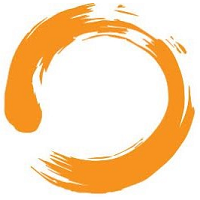Have you ever found yourself looking to “experts” for guidance or asking other people what you should do? Or found other people asking you what they should do? What makes us do this?
As a professional life coach, I’ve had occasion to ponder this question many times, especially when clients try to get me to tell them what to do. Now don’t get me wrong; in normal day-to-day life, I’m just like anyone else – I rarely ever thought twice about sharing my opinion or thinking I had a great answer when a friend (or let’s face it, even a stranger) asked for advice. During the course of my career, I’ve always been an adept and innovative problem solver and have worked many years as a professional consultant, so my instinct to come up with answers is well honed. But my coach training challenged that approach to the world in a really interesting way.
I subscribe to the school of coaching that centers around the philosophy, as defined by the International Coach Federation, that “the client is the expert in his or her life and work,” and that believes “every client is creative, resourceful and whole.” This essentially translates into the outcome that as a coach, I don’t tell people what to do. A coach is not a consultant, mentor, or counselor. A coach empowers the client to find their own answers and believe in their own experience. Which isn’t always easy, and means that as a coach, I have to find another path when a client asks me what they should do – one that helps them answer this question for themselves.
The “ask” from clients comes in a variety of forms. Sometimes it’s as straightforward as “What do you think should I do?” but other times it’s more subtle: “What would you do?” “What do you think?” “What’s your experience with this sort of thing?” All of it is fishing for insight, guidance, opinion, comfort, assurance, direction.
While there is certainly a stage of the decision-making process that includes seeking out information in the form of other people’s stories, perspective, and experience, there is also a deep knowing in ourselves that can get lost in this outer quest for input and opinion.
Regardless of how we get there, there comes a point where we have to reach a decision – and fortunately or unfortunately, no one can do this for us. We may in the end bow to someone else’s advice or preference, but we have still made the decision to do so, consciously or unconsciously.
So here is my advice, as promised, for the three most effective things you can do with “expert” advice:
- Discern whether you agree. There are “experts” out there arguing – in many cases quite convincingly – for any perspective you can imagine on a given topic. Just because someone is popular or well known (or simply loud), appears “successful” (such a subjective term!), or has incredible charisma and confidence doesn’t make them or their opinion right for you, necessarily. What thoughts and feelings do you have about the topic on which this person is sharing their opinion? What aspects (if any) of their opinion feel true and valuable to you and why? What aspects feel “off” to you and why? If someone asked you for your opinion on this topic, what would you say?
- Discern what (if any) applies to you. A given person’s advice or personal experience may apply to your situation, and it may not. We are each unique, with a combination of history, life experience, capabilities, neurophysiology, and life situation (resources, challenges, support network) that positions us on our own inimitable path. Maybe certain aspects of another person’s advice or experience directly apply for you. Maybe there are aspects that only apply with a little tweaking. Maybe there are aspects that don’t apply at all. Only you can determine this, because only you are you. Stand the world on its head and see what falls out of its pockets that you can use.
- Take appropriate-to-you action to apply what applies to you. Once you’ve determined what, if anything, is useful to you and your specific situation, then you get to figure out how best to apply it. We are each the artist of our own life. Think about some of the most creative art work you’ve seen – multimedia, collaged-together, pushing-of-the-boundaries, “I wonder what would happen if” ingenious uses of tools and materials. That’s your life – using the tools and talents and energy at your disposal, combined with the examples and advice you encounter along the way, to shape the experience you choose to have.
No one is more of an expert on your life and what’s right for you than you. In working with this idea, you may find that knowing how to listen to yourself and discern your own voice and inner knowing can be a real challenge. This is a wonderful realization(!) and is not at all unusual. Please know that you are not alone and that simply realizing that you are having difficulty hearing yourself in the midst of a world of “expert” voices is an essential first step on the path to changing this experience.
If it feels right to you, I would be delighted to have a conversation about how a coaching-style conversation can create a gentle, collaborative space that can support you in this quest for self-awareness. Please don’t hesitate to contact me if I can be of assistance to you on your journey.



